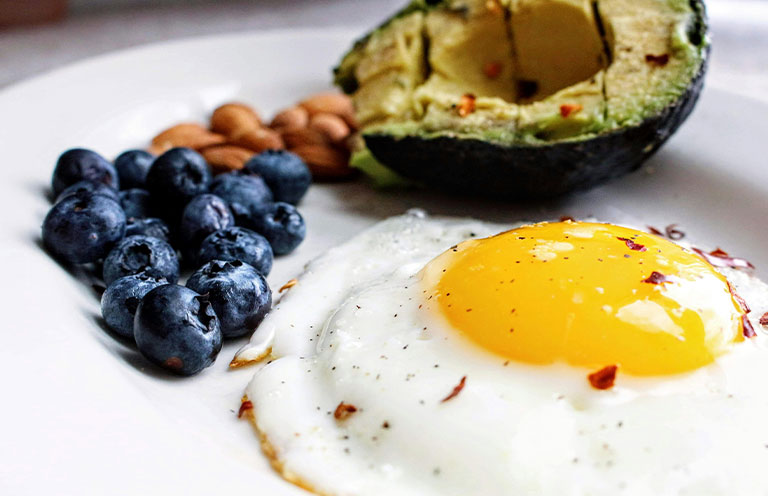Staying Sharp: Strategies to Strengthen Your Brain
A renowned MD shares top strategies to improve your brain health and delay cognitive decline


I remember visiting with my grandfather when he was in the advanced stages of dementia. He sat there, distant and lost, his eyes no longer recognizing me, his mind unable to recall my name. The strong-willed man I once knew was a shadow of himself. As painful as it was to witness his decline, the experience drives me to take steps to protect myself from a similar fate.
This desire to safeguard my brain health led me to Dr. Kellyann Niotis, a leader in the emerging field of preventative neurology. According to Dr. Niotis, many of her patients seek preventative care only after seeing a loved one suffer from a neurodegenerative disease such as Alzheimer’s or Parkinson’s.
“Most people don’t think about their brain health,” Dr. Niotis says, pointing out that up to 45 percent of dementia cases are preventable. “They don’t know there are things that they can be doing today to protect themselves later.”
Neurodegenerative disorders often begin in the brain and body decades before symptoms appear. Dementia currently affects more than 6 million Americans, and projections suggest the number of diagnoses could nearly double by 2060—driven largely by an aging population, earlier detection, and lifestyle-related risk factors.
Dr. Niotis emphasizes that it’s never too early to take action. Here’s her advice on how to combat cognitive decline and strengthen brain health.

Learn your family medical history
The first step, Dr. Niotis advises, is to ask family members about their health history. “You can’t be proactive if you don’t know what you’re up against,” Dr. Niotis says.
This means talking with your family members and gathering as much information as you can about their medical conditions, lifestyle habits, and personality traits. Such details can offer clues about what may have contributed to diseases such as dementia in certain relatives—and what could be relevant to you based on your genetic background.
“Take cognitive changes seriously,” Dr. Niotis cautions, noting that people often dismiss things such as an 88-year-old grandma’s memory lapses as mere forgetfulness. “Being forgetful at 88 is not normal. Understand that memory loss is not a definitive consequence of aging. Even subtle memory changes really can be representative of a slowly progressive dementia.”
If family medical history is sparse, consider genetic testing to identify at-risk genes.

Prioritize sleep
Sleep is essential for brain health. It allows the brain to consolidate and repair memories, process emotions, and clear harmful proteins linked to Alzheimer’s and Parkinson’s diseases.
Poor sleep quality, whether due to short and disrupted sleep or conditions such as sleep apnea, is linked with a higher risk of dementia. Consistent, restorative sleep helps reduce inflammation and improve cognitive function. The National Sleep Foundation recommends seven to nine hours of sleep each night for most adults.
“If you can’t get to sleep, get to the bottom of why,” says Dr. Niotis. Identifying the cause is the first step toward finding a solution to improving your sleep.
Exercise
“Exercise is the most important thing that everyone can do for their brain health,” Dr. Niotis says, adding that if you have to choose between sleep and exercise, always choose sleep. “The benefits of exercise are negated if you’re sleeping less.”
She encourages mixing up your exercise routine. Doing the same movements day after day stops challenging your body and mind. “The brain loves a challenge, so keep it fresh,” she says.

Eat smart
Fuel your brain with foods that help maintain low amyloid levels, a protein linked to neurodegenerative diseases. Dr. Niotis recommends the Mediterranean diet, rich in vegetables, fruits, whole grains, fish, nuts, and olive oil. These foods provide heart-healthy fats, antioxidants, and anti-inflammatory compounds that support brain function and reduce the risk of dementia.
Challenge your brain
“Cognitive stimulation is huge for brain health,” Dr. Niotis says. While puzzles such as crosswords and Sudoku help, “if that's all you do, you peak on the benefit.” Instead, try learning something new, especially in a group setting where social engagement adds extra benefits. “Try picking up a new hobby or taking an adult learning class,” she recommends.
Stay socially connected
Loneliness and social isolation are major risk factors for cognitive decline. “I encourage my patients to nurture their relationships,” Dr. Niotis says. “This can be scheduling a weekly phone call, having coffee or dinner with a friend, or joining a group activity or class.”

Find your stress relief
Chronic stress contributes to a variety of chronic illnesses and cognitive decline, making stress management essential. While experts agree that meditation can improve overall health and prevent memory loss, Dr. Niotis notes that meditation may not suit everyone. “Find what brings you joy and relaxation,” she says, emphasizing that consistency is key.
Be your own healthcare advocate
Take charge of your brain health by staying curious and proactive with your doctors. “Understand what your labs mean and know that ‘normal’ doesn’t always mean optimal [for brain health],” says Dr. Niotis. For example, blood pressure in the 130s might be considered normal, but it's actually higher than what's best for your brain. A systolic blood pressure below 120 mm Hg is optimal for brain health. This applies to other numbers, such as cholesterol, metabolic markers, and fasting blood sugar.
. . . . .
For more information: Check out the Lancet Commission on Dementia to learn how 14 lifestyle and health factors can help prevent or delay dementia—plus more practical steps you can take to protect your brain health.
